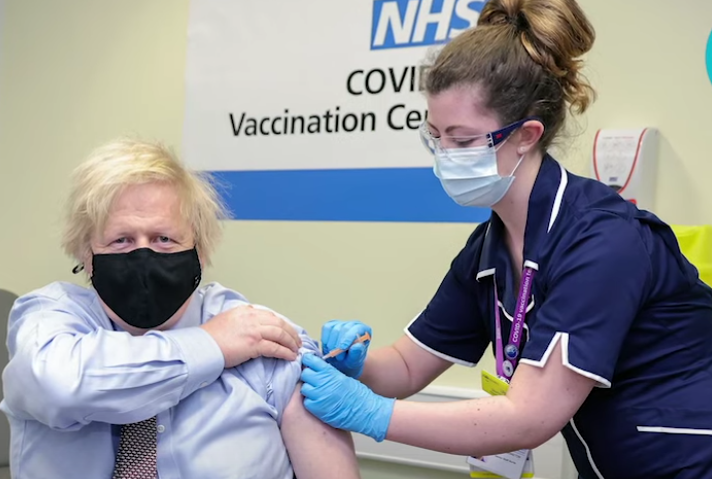Could Britain’s COVID rate be impacted by the actual jab that was used?

At the weekend I got my “booster” jab and unlike my earlier two vaccinations, it was the Pfizer one and not Astrazeneca which was given to tens of millions of Brits like me in the first waves of the vaccination programme.
Having a genetic condition that has led to two pulmonary embolisms (blood clots in the lung) in the past I have been very aware of the risks posed by COVID and have been ultra-careful in my behaviour. I know what it is like to be rushed into a hospital barely able to breathe.
The following is from an analysis in today’s Guardian by Kit Yates – director of the Centre for Mathematical Biology at the University of Bath:
. .Last spring, the UK was genuinely “world-beating” when it came to vaccination, rolling out jabs faster than almost any other country. But since the summer we have found our vaccine coverage lagging behind many EU countries’. Five million adults in the UK remain unvaccinated. As well as the overall coverage, the type of vaccine delivered influences the quality of the protection provided. The most vulnerable people in our society were given the AstraZeneca jab, which provides worse protection and is less effective at reducing transmission than the mRNA vaccines that were the staple of much of mainland Europe..To add to our problems, the recent scientific consensus is that vaccine-mediated immunity wanes over time. Six months down the line from our peak vaccination rate and heading into winter, it is clear that our rapid rollout, which made such a difference early on, is now acting to our disadvantage. The booster programme was supposed to rectify the problem, but its rollout has been unable to keep pace with the rapid first and second doses we delivered last spring. More and more people are falling six months beyond their first dose, becoming increasingly vulnerable all the time. In a country employing a vaccine-only strategy, boosters are crucial for protecting our most vulnerable.
Although I had not received a message from the NHS to get my booster I was very impressed by the efficiency of the set-up at my local vaccination centre and that like many others I was able to walk in.